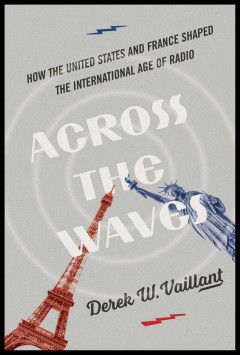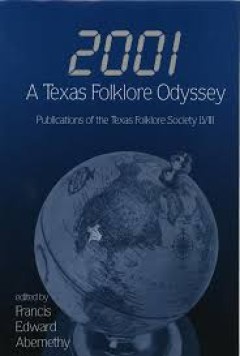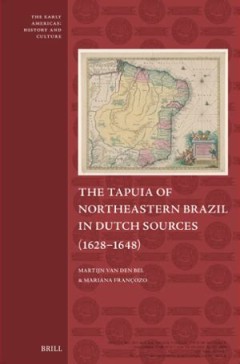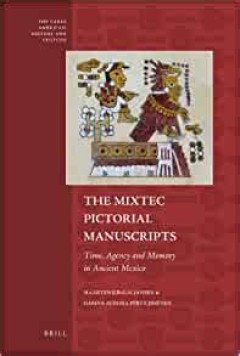Filter by

After the Siege
Drawing on extensive primary sources, including ward tax assessors' Taking Books, church records, census records, birth and marriage records, newspaper accounts, and town directories, Jacqueline Barbara Carr brings to life Boston's remarkable rebirth as a flourishing cosmopolitan city at the dawn of the nineteenth century. She examines this watershed period in the city's social and cultural his…
- Edition
- -
- ISBN/ISSN
- 9781555538743
- Collation
- 338
- Series Title
- -
- Call Number
- -

Across the Waves
In 1931, the United States and France embarked on a broadcasting partnership built around radio. Over time, the transatlantic sonic alliance came to personify and to shape American-French relations in an era of increased global media production and distribution. Drawing on a broad range of American and French archives, Derek Vaillant joins textual and aural materials with original data analytic…
- Edition
- -
- ISBN/ISSN
- 9780252050015
- Collation
- oer.unej.ac.id
- Series Title
- -
- Call Number
- -

Force for Change: The Class of 1950
Some of them were grown men going to college on the new G.I. Bill, and some were boys -- eighteen years old, straight out of high school. There were also young women coming to campus, rich in the traditions of their mothers and grandmothers. These women didn't know it, but the seeds of the modern women's movement had been planted during the war and in their generation. There were African-Americ…
- Edition
- -
- ISBN/ISSN
- 9781557539502
- Collation
- 406 hlm
- Series Title
- -
- Call Number
- -

2001, a Texas Folklore Odyssey
This volume of the Publications of the Texas Folklore Society "contains a sample of the research that members of the Society were doing at the turn of the millennium as represented at the 1998, 1999, and 2000 meetings." The volume covers "a wide variety of contemporary and historical topics," including baby lore, stories about notable women, stories about food and cooking, information about the…
- Edition
- -
- ISBN/ISSN
- 9781574411409
- Collation
- -
- Series Title
- -
- Call Number
- -

A Century of Violence in a Red City : Popular Struggle, Counterinsurgency, an…
In A Century of Violence in a Red City Lesley Gill provides insights into broad trends of global capitalist development, class disenfranchisement and dispossession, and the decline of progressive politics. Gill traces the rise and fall of the strong labor unions, neighborhood organizations, and working class of Barrancabermeja, Colombia, from their origins in the 1920s to their effective activi…
- Edition
- -
- ISBN/ISSN
- 978-0-8223-7470-1
- Collation
- 304 hlm
- Series Title
- -
- Call Number
- -

A Colonial Southern Bookshelf : Reading in the Eighteenth Century
A Colonial Southern Bookshelf studies popular books among southern readers in eighteenth-century America. From booksellers' lists and sale catalogs, Richard Beale Davis's study focuses on three key groups of literature: books in law, politics, and history; books on religious topics; and belles lettres. His examination of the colonial southern library suggests many revealing conclusions: persons…
- Edition
- -
- ISBN/ISSN
- 9780820359748
- Collation
- -
- Series Title
- -
- Call Number
- -

Time and the Ancestors : Aztec and Mixtec Ritual Art
In Time and the Ancestors: Aztec and Mixtec Ritual Art, Maarten Jansen and Aurora Pérez present new interpretations of enigmatic masterpieces from ancient Mexico. Combining iconographical analysis with the study of archaeological contexts, historical sources and living cultural traditions, they shed light on central symbols and values of the religious heritage of indigenous peoples, paying spe…
- Edition
- -
- ISBN/ISSN
- 9789004340527
- Collation
- 648 hlm; ill., lamp.,
- Series Title
- The Early Americas: History and Culture, Volume: 5
- Call Number
- -

The Tapuia of Northeastern Brazil in Dutch Sources (1628–1648)
This book presents the transcriptions and annotated translations of fifteen key historical documents concerning the Tapuia indigenous people written just before and during the Dutch occupation of northeastern Brazil. The selected documents vary widely in type, including letters, descriptions, reports, first-person declarations, diaries, and transcripts of interrogations, thereby showcasing diff…
- Edition
- -
- ISBN/ISSN
- 9789004543645
- Collation
- 308 hlm; ill., lamp.,
- Series Title
- The Early Americas: History and Culture, Volume: 11
- Call Number
- -

The Spanish Monarchy and the Creation of the Viceroyalty of New Granada (1717…
Francisco A. Eissa-Barroso’s The Spanish Monarchy and the Creation of the Viceroyalty of New Granada (1717-1739) argues that the pace and character of the most salient Bourbon reform introduced in Spanish America in the early eighteenth century were determined by relations between New Granadan elites and authorities in Spain, reflected changes in European geopolitical configurations, and echo…
- Edition
- -
- ISBN/ISSN
- 9789004308794
- Collation
- 340 hlm; ill., lamp.,
- Series Title
- Early American History Series, Volume: 6
- Call Number
- -

The Mixtec Pictorial Manuscripts = Time, Agency and Memory in Ancient Mexico
The Mixtec civilization (of Oaxaca, Mexico) is one of the most interesting to survive from pre-colonial Mesoamerica. Among its characteristic products were highly artistic pictographic codices depicting the history and dynasties of its city-states. This handbook surveys and describes the illustrated Mixtec manuscripts that survive in Europe, the United States and Mexico, outlines the history of…
- Edition
- -
- ISBN/ISSN
- 9789004193581
- Collation
- 600 hlm; ill., lamp.,
- Series Title
- The Early Americas: History and Culture, Volume: 1
- Call Number
- -
 Computer Science, Information & General Works
Computer Science, Information & General Works  Philosophy & Psychology
Philosophy & Psychology  Religion
Religion  Social Sciences
Social Sciences  Language
Language  Pure Science
Pure Science  Applied Sciences
Applied Sciences  Art & Recreation
Art & Recreation  Literature
Literature  History & Geography
History & Geography